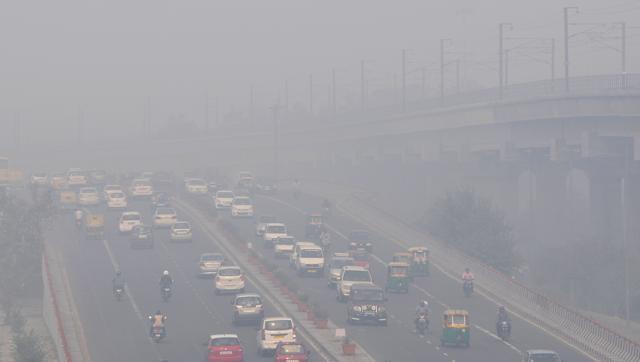11 Dec 2024

Tired Earth
By The Editorial Board

Despite alarming pollution levels, Delhi has seen a surge in private vehicles, while public transport is in decline, environmentalists have warned.
They quoted government figures that show there are now about 10 million vehicles registered in Delhi - up from fewer than nine million a year ago.
That is nearly three and a half times more than vehicles registered for Mumbai, India's financial capital.
The warning comes as smog has begun to blanket Delhi, raising health fears.
There are concerns that already dangerous air pollution may reach alarming levels once again.
"It is worrying that while Delhi is battling difficult pollution challenge, uncontrolled motorisation is threatening to undo the gains of the ongoing action," says Anumitta Roychoudhary of the Centre for Science and Environment, which issued the warning.
The centre's report says private cars have seen the biggest rise while the number of public transport services, such as buses, is in long-term decline.
Citing government figures, the environmental think-tank said up to 200,000 news cars hit the roads of Delhi in the past 12 months, marking a 20% rise.
There was just over a 6% rise in the previous year.
Experts say the new cars will need parking area equalling to 630 football fields.
Fewer buses
There was a 10% rise in two-wheelers this year - bringing additional 400,000 of the vehicles on the Indian capital city's streets.
Meanwhile, public transport, such as bus fleets, has been found to be declining year after year.
As a result, the Centre for Science and Environment says, buses saw almost 800,000 fewer passengers in the past two years.
A study by the Indian Institute of Technology, Kanpur, showed that cars and two-wheelers were responsible for more than 40 percent of particulate pollution from vehicles in Delhi.
Emissions from vehicles, power and manufacturing plants, dusts from construction sites and smoke from agricultural burnings have been the major sources of Delhi's pollution.
The Delhi government has tried schemes, including a crackdown on diesel vehicles and a car rationing scheme, where those with odd and even registration numbers were banned from the roads on alternate days.
Yet, the government had to shut all schools for three days as its citizens struggled with choking smog last November.
The move came after levels of PM2.5 - tiny particles that can clog people's lungs - soared to more than 90 times the level considered safe by the World Health Organization (WHO) and 15 times the Indian government's norms.
Nearly 20 years ago, India's supreme court ordered the country's capital to have 10,000 public buses.
"That order is yet to be implemented and as a result Delhi now has a little over 5000 buses and the fleet is constantly declining," said Ms Roychoudhary.
Source: bbc.com
Comment